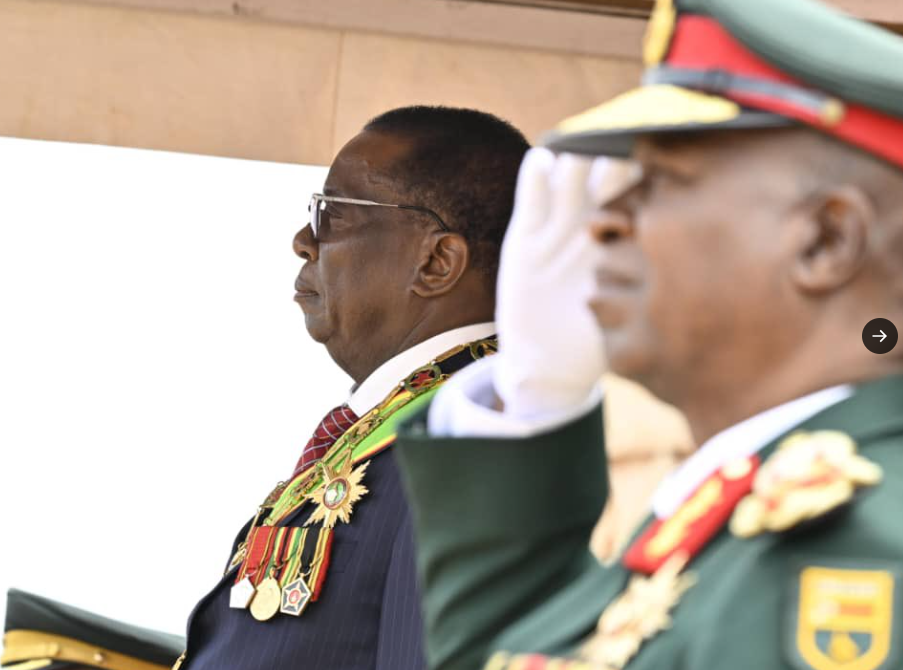Despite ongoing socio economic challenges, President Emmerson Mnangagwa painted a picture of resilience and optimism as he delivered his State of the Nation Address (SONA) on Wednesday in Parliament in Harare, highlighting national unity, self-reliance and sustainable agricultural growth as key pillars for Zimbabwe’s future.
Speaking at the official opening of the Second Session of the 10th Parliament at the new Parliament Building in Mount Hampden, Mnangagwa emphasised the government’s commitment to economic resilience, food security, and agricultural progress.
Mnangagwa acknowledged the challenges Zimbabwe faces, including an El Niño-induced drought that has constrained growth, particularly in the agricultural sector.
However, he emphasised the country’s steady progress in the face of adversity, reaffirming the administration’s focus on unity and development.
“It is my distinct privilege and honour to once again address this August House, nearly a year since the opening of the First Session of the Tenth Parliament of Zimbabwe. The peace and tranquillity that has prevailed since then has allowed evident results in all parts of the country,” Mnangagwa began.
”Our commitment to enhance the well-being of the people of our motherland, Zimbabwe by entrenching unity, stability, security and development remains a key mission for my Administration.”
The president assured Zimbabweans that despite the “enormous challenges and difficulties” posed by economic sanctions, the country is on the right path towards inclusive growth.
“The philosophy of leaving no one and no place behind is anchored on inclusive transformation and shared prosperity,” he said.
In a direct call for national unity, Mnangagwa warned against tendencies that fuel discord based on regional, tribal, or social differences.
“Our nation’s strength lies in unity in diversity, hence, social cohesion and our unitary state shall be jealously guarded and defended by my government,” the president declared.
“Tendencies that fuel discord based upon perceived, regional and tribal differences, as well as social and economic hierarchies have no place in our nation must be rejected.”
In response to the drought crisis, Mnangagwa acknowledged the impact of the El Niño-induced drought, which constrained growth across various sectors, particularly agriculture.
To mitigate food shortages, the president outlined several government interventions.
These include the Food Deficit Mitigation Programme, which is providing grain to rural communities, and the Cash-for-Cereals Programme for vulnerable households in urban areas.
“Of particular note is the School Feeding component, which has been designed to avail at least one decent meal per day for all learners in communities hard hit by the drought,” Mnangagwa added, reassuring the country that “no Zimbabwean will go without food.”
On Zimbabwe’s agricultural prospects, the president praised the country’s farmers and agricultural policies for making sure there was food security, pointing to a projected record wheat harvest of 600 000 tonnes from the 2024 winter crop.
“This is a result of our unity of purpose and effective policy frameworks,” he said.
Mnangagwa also highlighted the success of government programmes such as the Pfumvudza/Intwasa Presidential Climate-Proofed Agriculture Production Scheme, which has distributed inputs to farmers.
The president also noted the commitment of financial institutions and private sector stakeholders to supporting agricultural productivity.
In recognition of Zimbabwe’s agricultural achievements, Mnangagwa proudly announced that the Agricultural and Rural Development Authority (ARDA) had won the prestigious 2024 Africa Food Prize.
“For the upcoming summer season, ARDA has been given a target of 500 000 tonnes of cereals for the Strategic Grain Reserve,” he added.
Addressing water and rural infrastructure, Mnangagwa underscored the importance of water harvesting as a crucial element of climate change mitigation.
He emphasised the need for full utilisation of small dams and weirs, as well as improving water conveyancing around larger dams.
The president said that the Rural Infrastructure Development Agency is scaling up support for communities by providing tillage activities as the summer farming season approaches.
“Beyond water provision, the government has rolled out a programme to bolster hay-baling and transportation to drier regions,” he added, highlighting efforts to assist farmers in drought-prone areas.
The president also expressed his gratitude to the international community for its response to Zimbabwe’s humanitarian appeal following the drought.
He also expressed optimism for the upcoming 2024 to 2025 summer cropping season, with projections of normal to above-normal rainfall in most provinces.

